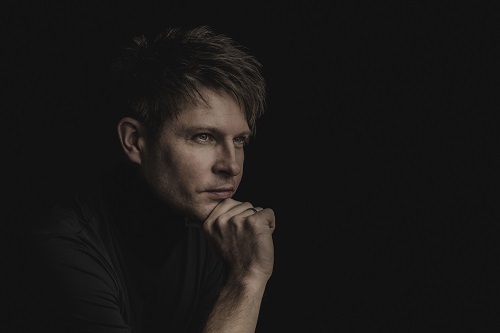 United Kingdom Stravinsky and Beethoven: Kirill Gerstein (piano), Royal Philharmonic Orchestra / Krzysztof Urbański (conductor), Royal Festival Hall, Southbank Centre, London, 16.5.2018. (AS)
United Kingdom Stravinsky and Beethoven: Kirill Gerstein (piano), Royal Philharmonic Orchestra / Krzysztof Urbański (conductor), Royal Festival Hall, Southbank Centre, London, 16.5.2018. (AS)

Stravinsky – Scherzo à la russe; L’oiseau de feu
Beethoven – Piano Concerto No.5 in E flat, Op.72, Emperor
Stravinsky’s Scherzo à la russe has claims to be one of the composer’s least important works. Hardly surprising, since it was written for an aborted film project, then converted as a piece for jazz ensemble, its brief length of four minutes made necessary for a 78rpm recording by the Paul Whiteman Band, and then it was finally re-scored for full orchestra. And yet this march-like piece, with its seemingly deliberate scantiness of invention, its pawky, poker-faced nature, still somehow has the unmistakable hand of the great master. So how do you perform the piece? Well, you just play it through, and that is exactly what the RPO and Urbański did.
The platform changes for the Beethoven work that ensued seemed to take as long as the opening work, but eventually Kirill Gerstein and Krzysztof Urbański strode onto the platform in order to perform the Emperor Concerto. What followed might be fairly described as merely ‘interesting’. Gerstein has a fine technique and makes a very attractive sound, and his performance was perfectly in style. But the first movement, at least, had very little more than these basic characteristics. The opening orchestral tutti sounded lacklustre, and when Gerstein joined the fray in earnest his immaculate playing was lacking in fire or temperament. His smooth, matter of fact playing generated little power or tension.
The slow movement went rather better, since more feeling crept into the music-making, and even if it was a shade deliberate, Gerstein’s thoughtful delivery was attractive. But there was a lack of drive in the finale, it was all too delicate in nature, and the titanic musical argument was reduced to somethings akin to a bouncy waltz. Interestingly, Gerstein’s playing of a Chopin waltz as an encore was beautifully in style and seemed to suit him more than Beethoven’s heroic moods.
It is always a joy to hear the complete Firebird ballet, rather than the inadequate suites that are usually played, and Urbański and the RPO fully met expectations. Though the orchestral playing was of the highest class – the RPO these days is a very classy body at its best – Urbański did not go for showy virtuosity of the kind we usually hear. Though he took quite a swift tempo at the beginning of the work, effectively so, he kept the dynamic level well down, so that the music’s sinister aspect was well brought out. And as the performance progressed one was more aware of the sheer beauty of the music than is usually the case. There was a satisfying subtlety of textures, a seductive delicacy in the ever-changing orchestral colours, and acute sensitivity in the way Urbański shaped the phrasing and created potent atmosphere in the contrasting moods of the score. If this suggests a lack of virility in the music-making there was plenty of energy in evidence, for instance in the Infernal Dance. But here, as elsewhere in the other faster sections, Urbański did not put the RPO into overdrive. Rhythms were supple and springy. How much is missed in the suites, where the consoling warmth of the Round Dance is abruptly fast-forwarded to the force of the Infernal Dance. In the complete score the music of the intermediate episodes between these numbers surely contains some of the ballet’s finest musical invention.
It is always something of a thrill to hear the finest virtuosic interpretations of this music, of course, but it was also very pleasurable and stimulating to experience Urbański’s different approach.
Alan Sanders